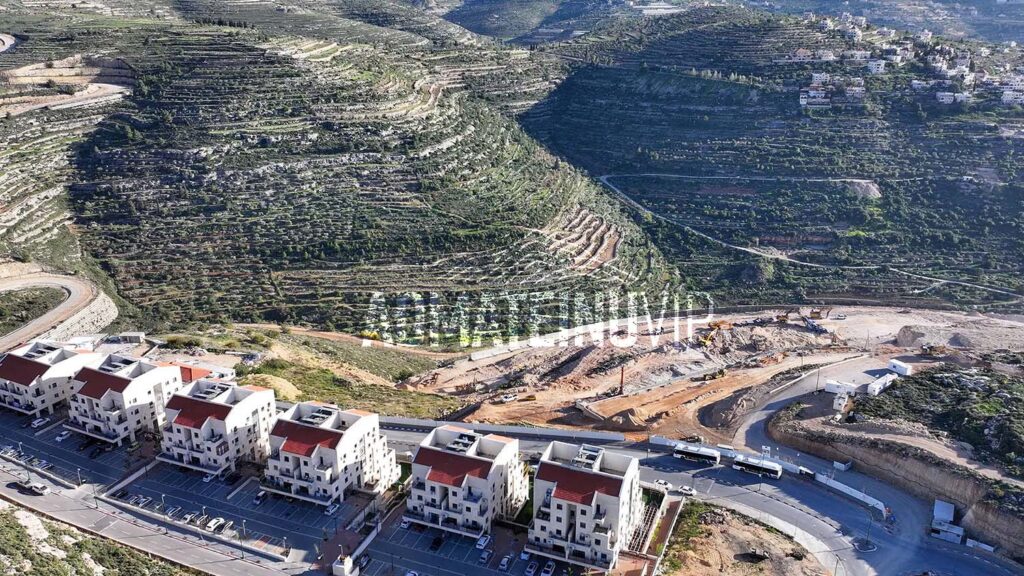When considering real estate investment opportunities in Israel, two prominent options often come up:
purchasing an apartment or investing in land. Both avenues offer distinct advantages and come with their own set of challenges. Let’s delve into each option to understand which might be the better fit for your investment goals.
Buying an Apartment Advantages:
Immediate Rental Income: One of the most appealing aspects of purchasing an apartment is the potential for immediate rental income. This provides a steady cash flow from day one, which can be particularly beneficial in cities like Tel Aviv, Jerusalem, or Haifa, where demand for rental properties is high. The consistent income stream can be an attractive feature for investors seeking regular returns.
Stable Investment: Apartments in established and desirable neighborhoods tend to offer a stable investment. The real estate market in major cities often shows steady appreciation, which can provide long-term capital gains. Investing in well-located apartments often results in a less volatile investment compared to more speculative options.
High Demand: With Israel’s growing population and high cost of living, there is a strong and ever-present demand for rental properties. This demand can help ensure high occupancy rates and can make it easier to find tenants, further securing your investment’s profitability.
Easier Management: Apartments typically involve fewer administrative and regulatory complexities compared to land. They come with established infrastructure, and property management services can help handle maintenance and tenant issues, making the investment relatively easier to manage.

Disadvantages:
High Initial Costs: The cost of purchasing an apartment, particularly in major cities or desirable neighborhoods, can be substantial. This includes not only the purchase price but also additional costs such as taxes, maintenance fees, and property management expenses. This high entry cost can be a barrier for some investors.
Maintenance Costs: Owning an apartment involves ongoing maintenance and repair responsibilities. These costs can affect the overall return on investment and must be factored into the investment equation. Regular upkeep and management can also be time-consuming.
Market Saturation: In some markets, especially those with a high density of rental properties, there might be more competition, which could affect rental yields and occupancy rates. It’s crucial to conduct thorough market research to understand local dynamics and demand.

Investing in Land Advantages:
High Appreciation Potential: Land investments can offer significant appreciation potential, particularly in areas experiencing growth or undergoing development. As infrastructure improves and new projects emerge, the value of land can increase substantially, providing a potentially lucrative return on investment.
Lower Purchase Price: Generally, land can be purchased for a lower price compared to an apartment, making it an attractive option for investors with a more limited budget. This lower entry point can also mean a lower initial risk compared to the high cost of purchasing an apartment.
Less Maintenance: Land requires minimal maintenance compared to an apartment. Without the need for regular upkeep or tenant management, it can be a more passive investment. This can be appealing for investors who prefer a less hands-on approach.
Development Potential: Purchasing land provides the opportunity for future development. Investors can potentially develop the land for residential, commercial, or mixed-use purposes, which can significantly increase its value. This aspect allows for greater flexibility and potential for higher returns if the land is developed wisely.
Disadvantages:
Longer Time Horizon: Land investments typically require a longer time frame to realize returns. The process of obtaining permits, completing development projects, and finally selling or renting the developed property can take several years. This extended timeline can be a drawback for those seeking quicker returns.
Regulatory Hurdles: Investing in land often involves navigating complex zoning laws, planning permissions, and development regulations. These regulatory challenges can be cumbersome and require significant expertise or the assistance of local professionals to ensure compliance.
Less Immediate Income: Unlike an apartment, land does not provide immediate rental income. The returns are primarily based on future appreciation and development potential. This lack of immediate cash flow can be a disadvantage for investors looking for regular income.
Which is Better?
Choosing between buying an apartment and investing in land largely depends on your investment objectives, risk tolerance, and time horizon:
If you’re looking for immediate returns and a more straightforward investment, purchasing an apartment might be the better option. It offers the benefit of rental income and generally


